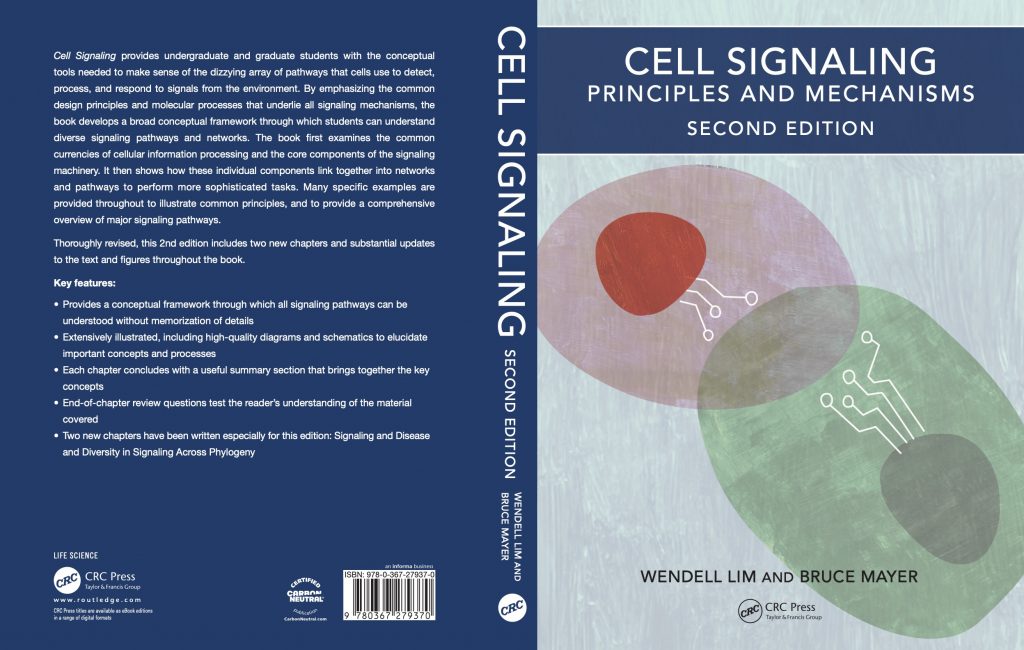October 2, 2024. The second edition of Cell Signaling: Principles and Methods is coming out this month. CCAM faculty member Bruce Mayer is one of the authors of the popular cell signaling textbook, which was originally published in 2014. The second edition is has been thoroughly updated and includes two new chapters.
Cell Signaling: Principles and Methods (2nd Edition) by Wendell A. Lim, Bruce J. Mayer
ISBN 9780367279370
